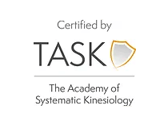Diabetes and Applied Kinesiology: A Holistic Approach to Healing
Explore the power of nutrition and mindset in combating diabetes. Discover foods that can help stabilize blood sugar levels and the role of positive thinking in managing the condition.

Understanding Diabetes
Diabetes is a chronic condition characterized by high blood sugar levels. There are two main types of diabetes:
Type 1 diabetes: This type is caused by the body's inability to produce insulin, a hormone that regulates blood sugar levels.
Type 2 diabetes: This type is caused by insulin resistance, meaning the body's cells don't respond effectively to insulin.
Diabetes can lead to a range of health complications, including heart disease, stroke, kidney disease, and nerve damage.
The Role of Applied Kinesiology
Applied Kinesiology (AK) offers a holistic approach to managing diabetes. By assessing muscle strength, AK practitioners can identify underlying imbalances that may be contributing to diabetes or its complications.
How AK Can Help with Diabetes
Identifying underlying imbalances: AK can help identify underlying factors contributing to diabetes, such as hormonal imbalances, nutritional deficiencies, or emotional stress.
Supporting the endocrine system: AK can help balance the endocrine system, which regulates hormone production, including insulin.
Improving insulin sensitivity: AK can help improve the body's response to insulin, reducing blood sugar levels.
Addressing stress: Chronic stress can contribute to diabetes. AK can help identify and address stress-related factors, promoting relaxation and reducing blood sugar levels.
Supporting weight management: Weight management is crucial for people with diabetes. AK can help identify and address underlying factors that may be contributing to weight gain or difficulty losing weight.
The Power of Nutrition
Diet plays a significant role in managing diabetes. Certain foods can help regulate blood sugar levels, while others may exacerbate the condition.
Foods that can help with diabetes:
Fiber: Consuming enough fiber can help regulate blood sugar levels.
Whole grains: Whole grains provide fiber and complex carbohydrates, which can help stabilize blood sugar levels.
Lean protein: Lean protein sources can help control blood sugar levels and support overall health.
Healthy fats: Healthy fats, such as those found in nuts, seeds, and avocados, can help regulate blood sugar levels.
Non-starchy vegetables: Non-starchy vegetables are low in carbohydrates and can help control blood sugar levels.
Foods to avoid or limit:
Sugary foods and drinks: Added sugars can spike blood sugar levels.
Refined carbohydrates: Refined carbohydrates, such as white bread and pasta, can raise blood sugar levels quickly.
Processed foods: Processed foods are often high in unhealthy fats, added sugars, and sodium, which can contribute to diabetes.
The Mind-Body Connection
Our thoughts and beliefs can significantly impact our physical health, including diabetes. Negative self-talk and limiting beliefs can create stress and exacerbate symptoms.
AK can help identify and address these limiting beliefs, allowing for positive transformation. By shifting your mindset and focusing on self-love and acceptance, you can create a more positive environment for healing.
A Holistic Approach to Diabetes
By combining the power of Applied Kinesiology, nutrition, and mindset, you can take a holistic approach to managing diabetes. Remember, healing takes time and patience. By working with an AK practitioner and making lifestyle changes, you can improve your quality of life and reduce the impact of diabetes.
Ready to unlock the power of Applied Kinesiology for your diabetes management?
Schedule a consultation today and embark on a journey to optimal health and well-being.




